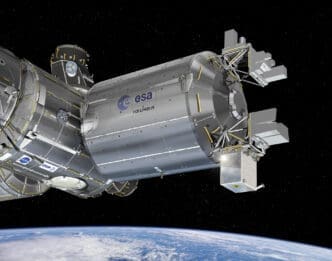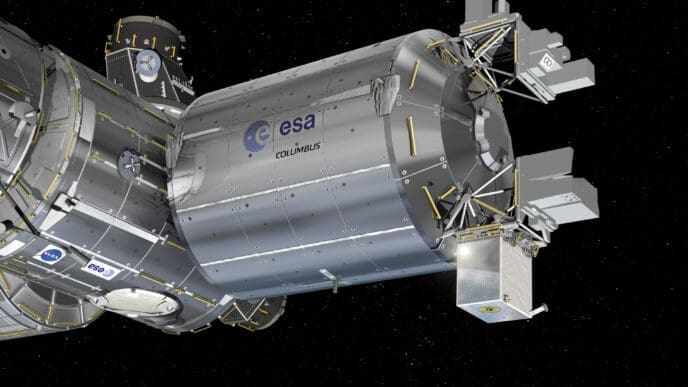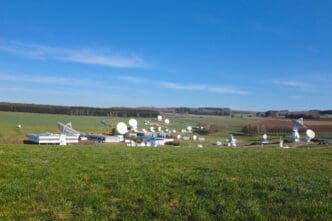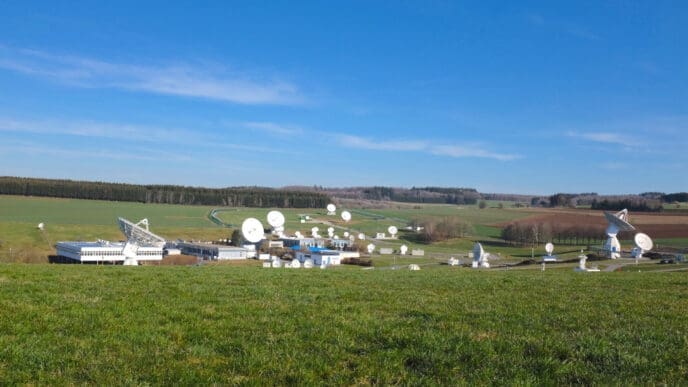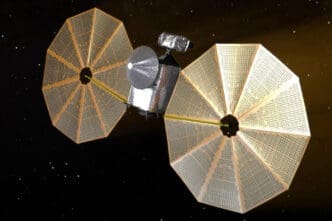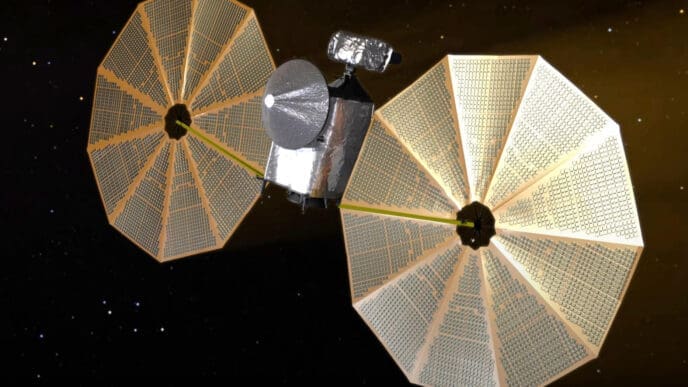In a significant advancement for space exploration, Blue Origin successfully conducted the first integrated hotfire test of its New Glenn rocket, mere hours after receiving approval from the Federal Aviation Administration (FAA) for its inaugural launch.
Blue Origin’s New Glenn rocket underwent its first integrated hotfire test at Cape Canaveral Space Force Station’s Launch Complex 36. The event marked the first time the rocket operated as a complete system, demonstrating the functionality of its seven BE-4 engines. These engines, known for their powerful liquid oxygen and liquefied natural gas combustion, successfully fired for 24 seconds.
This test followed a comprehensive multi-day evaluation that included various functional and tanking assessments. All were conducted with the rocket configured for its upcoming test flight, known as NG-1, which will feature both the first and second stages intended for future missions. The payload for this mission includes components like manufacturing test demonstrator fairings and a 45,000-pound payload mass simulator.
[twitter-embed-display twitter_url=’https://twitter.com/cantworkitout/status/1872824935732916265′]
The FAA’s authorization allows Blue Origin to conduct orbital missions using the New Glenn rocket from Cape Canaveral, with a reusable first stage capable of oceanic landings. This license is valid for five years, enabling a series of planned launches aimed at delivering payloads to geostationary and interplanetary destinations. This includes the Blue Ring Pathfinder, a demonstrator for future space mobility platforms.
Blue Origin CEO Dave Limp, along with founder Jeff Bezos, expressed their readiness to advance towards New Glenn’s initial launch. Limp emphasized the success of their rigorous testing and engineering approach, evidenced by this groundbreaking hotfire test.
The New Glenn rocket, standing over 320 feet tall, is designed to undertake 25 missions using its reusable first stage. The first mission’s launch date remains unspecified, but its successful execution is expected to pave the way for subsequent missions involving clients like NASA and Amazon’s Project Kuiper, as well as telecommunications companies and U.S. government agencies.
In addition to Blue Origin’s initiatives, the New Glenn project is undergoing certification with the U.S. Space Force to support national security goals. The rocket’s BE-4 engines are not only pivotal to its own operations but also serve the United Launch Alliance’s Vulcan rocket, emphasizing their integral role in current aerospace advancements.
Blue Origin’s successful hotfire test represents a crucial step in the journey toward the New Glenn rocket’s inaugural launch. With regulatory approval secured and technical hurdles overcome, the company is on the brink of entering a new era of space exploration.


